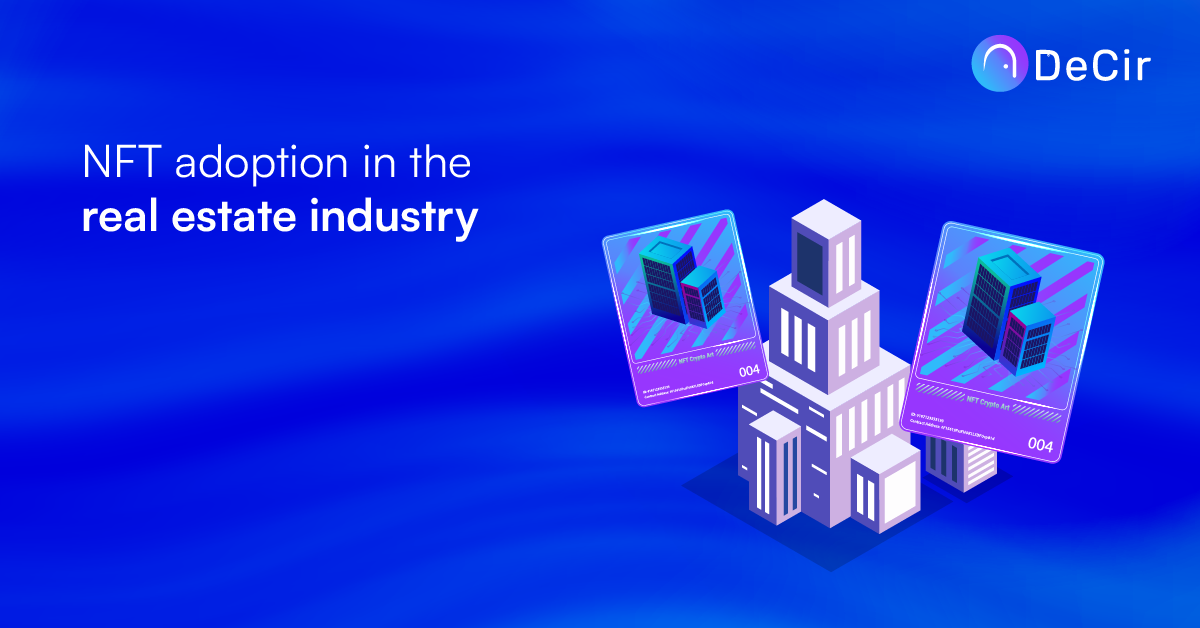The introduction of NFT to the real estate industry has changed our conception of ownership. At the same time, NFT has successfully ushered in a new way to invest in properties. Against this backdrop, NFT adoption in the real estate industry has been to positive effect.
TL;DR
- NFT helps investors to claim digital ownership of physical properties on the blockchain.
- NFT also simplifies property investing for retail investors who do not have the required funds to buy an entire property
- The evolution of the metaverse has further made NFT real estate valuable. Virtual lands and digital properties typically exist as NFTs.
Digital Ownership of Physical Properties
The introduction of NFT to real estate has created a new way to verify and claim ownership of physical assets. In the traditional real estate industry, landowners are often issued certificates in the form of paper documents.
The issue with this approach is that paper documents can be lost, stolen, or destroyed. When this happens, the landowner no longer has any evidence to showcase ownership. At the same time, physical documents can be manipulated or altered.
NFTs, by their innate characteristics, could be used to permanently represent valuable assets on the blockchain. Thus, solving the issue of ownership and asset verification in real estate. Land and property owners can now be presented with NFTs that represents the asset been transferred from the seller to the new owner. This kind of record is digital, permanent, and immutable.
Also read: How NFT is adopted in Decentralized Finance
Fractional Investment Opportunities
The real estate industry is inherently faced with liquidity issues. This is because most real estate assets command huge fees that only a handful of people can readily afford. This also means that real estate properties are not as liquid as other forms of assets.
Fractional ownership through NFT helps to solve this issue. Fractional NFT combines the attribute of NFTs with the characteristics of regular crypto tokens. This way, a single piece of real estate property can be shared and owned by multiple parties who individually own a fraction or piece of the larger property.
The main advantage of this approach is that it opens up the room for small-scale investors to build their investment portfolios. It also helps to inject the real estate industry with the needed liquidity that has often evaded the space for a long time.
Metaverse Real Estate Investment
Real estate and property ownership are no longer confined to the physical space. The evolution of the metaverse has brought in a new wave of digital property ownership where all assets in the virtual world exist in the form of NFT.
The metaverse is expected to be the next iteration of the internet. In the metaverse, humans will have a more personalized experience. They will be able to own virtual houses, lands, and businesses, and even attend virtual concerts. All of these things will be built on virtual lands.
Today platforms such as decentraland and sandbox are building virtual worlds where humans can own virtual lands and properties. Users can buy or rent virtual lands on Decentraland. The demand for virtual real estate properties is expected to grow considerably in the near future.
Also read: Top 5 Industries adopting NFTs
Conclusion
The real estate industry is a typical example of how useful NFTs could be for traditional businesses. NFTs help to guarantee ownership while also serving as an important tool for economic investment.


